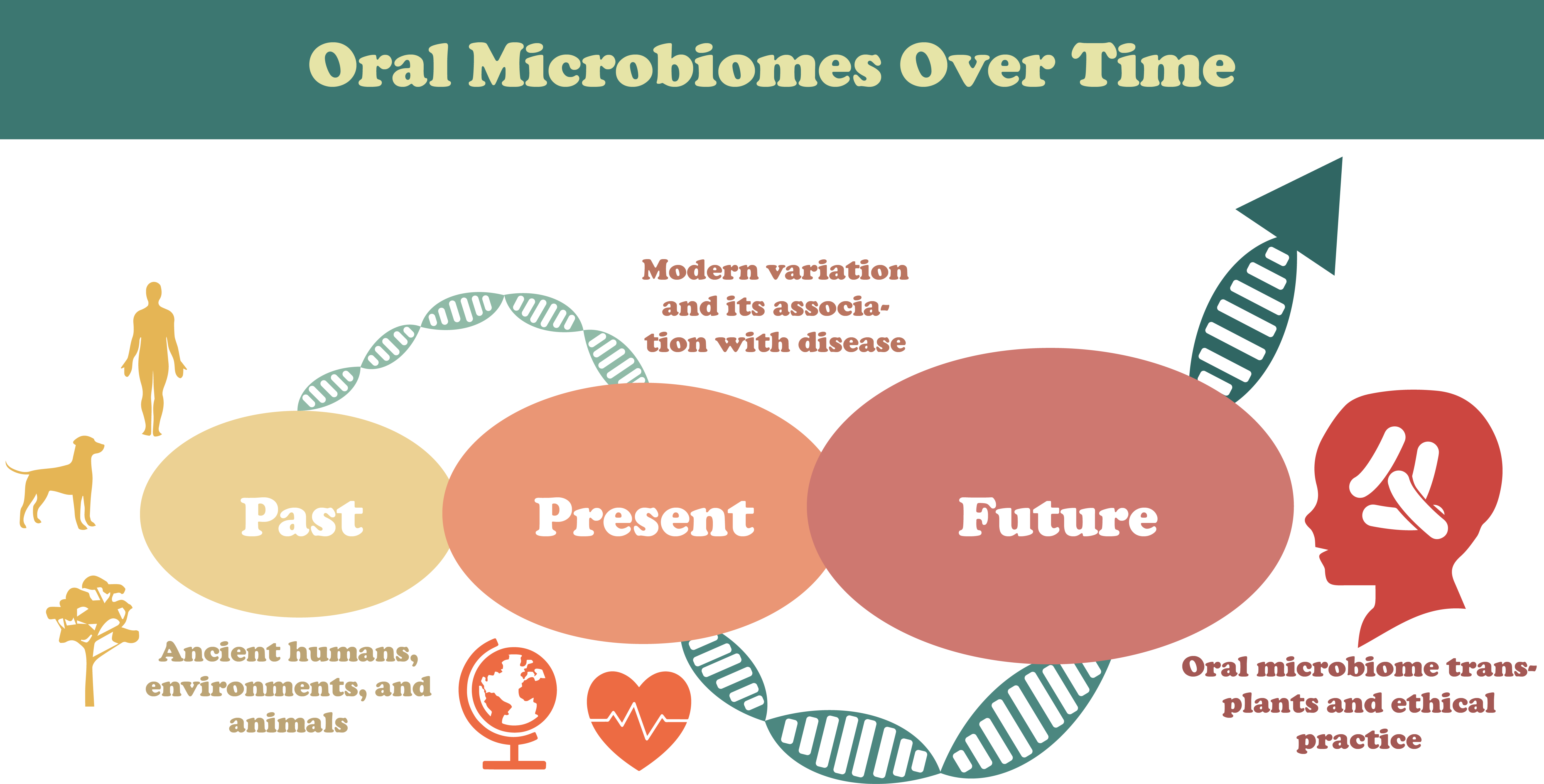What we do
Our research focuses on microbiome adaptation and evolution in different ecologies. We use a mixture of ancient DNA, anthropological microbial genomics, and experimental models to explore and identify mechanisms of microbial community change and adaptation and translate these mechanisms to improve the world around us today.
We believe that information from the past can inform our future. We are using ancient DNA to actively reconstruct the last 20,000 years of evolutionary history of the human microbiome on six continents. By reconstructing ancient human oral microbiomes from calcified dental plaque, we have already learned about past hominin lives and interactions, the origins of some modern diseases, and what we could do in the future to improve human health.

Our Projects
We are exploring different microbiomes in a variety of contexts including everything form Antarctic ice to human teeth. Check out what our research team is currently up to by reading through the projects below!
World Wide Ancient Oral Microbiome Diversity
We are working to reconstruct the evolutionary history of the human oral microbiome on five continents over the past 50,000 years.
Oral Microbiome Transplant Therapy
Our international team, in partnership with the University of Adelaide, is developing oral microbiota transplant (OMT) therapy for possible treatment of severe cavities or periodontal disease.
Romania Project
Graduate student Sterling Wright is studying both ancient and modern microbes in Romania to understand ecosystem resilience and adaptability.
Systemic Disease Project
Graduate student Abby Gancz is developing methods to analyze how systemic diseases impacted the health and wellbeing of past populations.
Model Systems of Oral Microbiota
PI Laura Weyrich is studying how different dietary nutrient compositions impact mouse microbiomes.
Stone Tool (ARROWS) Project
Researcher Samantha Muller is working to study ancient DNA recovery from stone tools.
Kenya Project
PI Laura Weyrich is studying how human microbiome diversity relates to enviornemental, social, and genetic factors as well as the onset of non-communicable diseases.
Ugandan (Batwa/Bakiga) Project
Graduate researcher Iyunoluwa Jesudemilade is studying how lifestyle changes altered the composition and diversity of oral microbiomes in Uganda.
NHANES Project
Graduate researcher Crystal Crabb is analyzing the relationship between oral microbiome and periodontal severity, as well as other social/environmental factors.